‘Madman’ Johnson gets his Hollywood ending
Pulp Fiction, Monty Python and a Five Guys burger — the often surreal moments on the British PM’s bumpy road to a Brexit deal
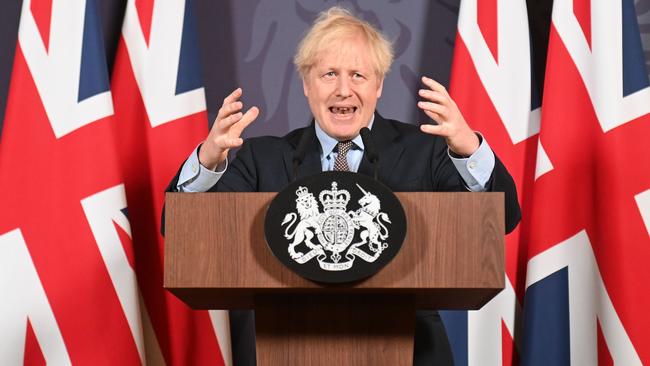
The darkest hour was not before dawn — it came at 8pm on Monday (7am, Tuesday, AEDT). That was when Boris Johnson delivered the message to European Commission president Ursula von der Leyen that he would not sign a Brexit deal with the EU.
“I cannot sign this treaty, Ursula,” he said. “I can’t do something that is not in my country’s interests.”
Earlier that day the EU had produced its final card, a clause that von der Leyen called “the hammer”, granting Brussels the right to retaliate across the board if Britain sought future reductions in access to its waters for EU fishermen.
One of those listening said: “It was the most direct that he was with her. He said that unless they changed track, we would trade on Australian terms” — No 10 code for no deal. “That was the closest it came to all falling over.”
Adopting an antipodean twang and saying, “Australia is a beautiful country” seemed to be getting Johnson nowhere. He then spoke to von der Leyen in her own tongue: “Viel hummer, kein hammer” (“lots of lobster, no hammer”).
One of those listening said Johnson also sought to explain the problem with reference to the surreal cartoons in one of Britain’s best-known sketch comedy shows. “We can’t have this Monty Python situation, where we are trapped in the car with a giant hammer outside the gates to clobber us every time we drive out.”
This was met with silence and then: “OK, thank you, Boris.”
It was not the first time one of Johnson’s pop culture references had sailed over von der Leyen’s head. A few weeks ago, with the talks then deadlocked over how closely the UK would have to adhere to EU regulations, Johnson told her: “We need to revive this process like that scene in Pulp Fiction, where they stick the adrenaline straight into Uma Thurman’s heart.”
Von der Leyen replied: “I haven’t seen that film.”
A Downing Street official said: “She and her team all had to huddle around an iPhone and watch that scene to know what he was talking about.”
By Monday, more than 4½ years after the EU referendum, these moments seemed to crystallise the gulf separating an EU establishment, whose frames of reference were totally different, from a prime minister they found baffling.
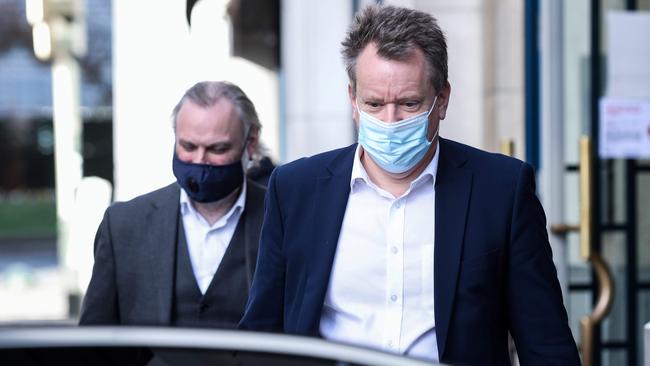
British negotiator David Frost and his deputy, Oliver Lewis, contemplated failure. “There were some pretty dark times in the final two days,” one member of the team admitted.
In the end, Monday’s call convinced the EU to move over fisheries. On Tuesday, it ditched demands that EU vessels should continue to enjoy their current quotas for seven or eight years.
On Wednesday morning there was a last moment of farce, when von der Leyen said the EU would accept a transition of six years to lower fishing quotas. Johnson said: “Five!” A seemingly endless silence then ensued, broken by the No 10 switchboard operator apologising that the connection had gone down. A disembodied German voice then piped up: “No, I’m still here — 5½ years?”
After lunch, in their fourth call of the day, the pair agreed to a 25 per cent reduction in EU fishing quotas in that time — a far cry from the original 80 per cent sought by Johnson. The negotiators were left to thrash out the final text, which took until 2.44pm the following day: Christmas Eve.
For Johnson, it was the end of an odyssey that began in February 2016, when he decided to back the leave campaign and in which he evolved from a popular but politically slight figure best known for being stuck on an Olympic zip wire, into a divisive leader whose actions and views have — for good or ill — changed the course of the nation’s history.
Critics ridicule Johnson’s self-reverential mirroring of Winston Churchill, but even they can scarcely contest that he has become the most consequential politician of his generation. When Michael Gove had dinner with him just before they joined Vote Leave, what he saw that night led him to conclude: “Churchill wanted to put himself at the centre of events. I think it’s the same with Boris.”
Four years on, an aide to Johnson put it like this: “This is Boris’s world now. The rest of us are just living in it.”
The search for sovereignty
To Johnson’s team the signature moment in the 11-month quest for a trade deal came in the first negotiating session between Frost and his EU counterpart, Michel Barnier, in early March. Frost outlined Johnson’s key demand, that the UK be treated as an independent nation. Barnier responded with “a hilarious meltdown”, one British official said, the Frenchman launching into a “massive rant” in which it is claimed he said: “Why do you keep mentioning ‘sovereignty’. All you do is mention this word.”
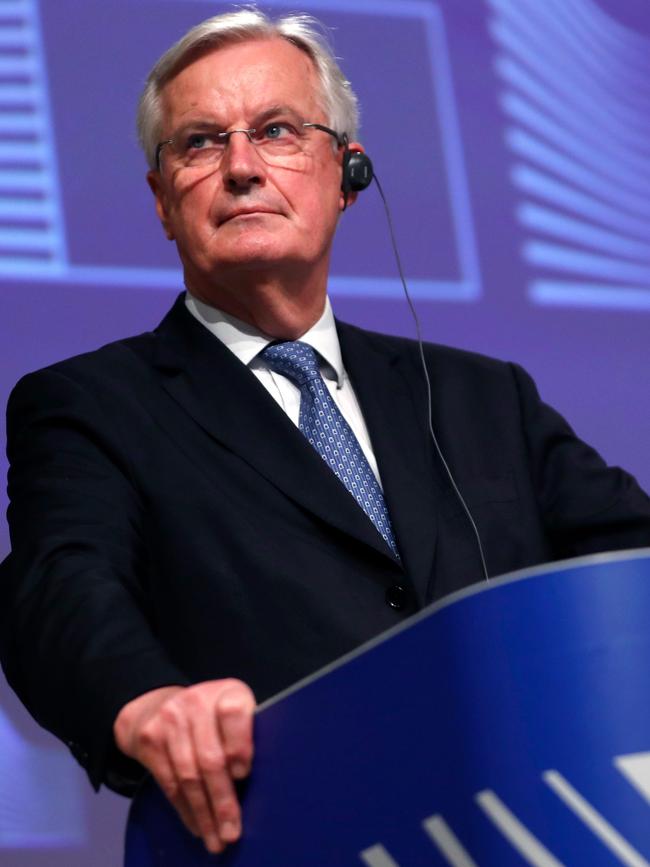
In another meeting, an enraged Barnier shouted: “I am calm!” These outbursts became known to the British team as “Michel’s calm and serene moments.” But they revealed a discomfort with the British approach that went beyond negotiating tactics to fundamental philosophical differences. To European leaders, it was a foundational principle that countries pool sovereignty for mutual gain.
Since 2016, Johnson’s critics, in both Brussels and London, were so convinced that he had backed Brexit only to further his career that they seldom bothered to study his stated reasons.
On a flight home from a Middle East trip in November 2015, Johnson summoned this journalist from his economy-class berth for an interview perched on his club class footstool. “You could ask me a load of questions, but there isn’t much point because this is what I want to say,” he said, outlining details of a “sovereignty clause” that he wanted enshrined in British law, allowing parliament to override decisions from Brussels.
It was a blunt message to then prime minister David Cameron: his price for backing remain. It would have been front-page news had there not been a terrorist attack that week. Cameron could not make the concept work and Johnson’s then wife, the QC Marina Wheeler, convinced him leaving was the only way to make laws British.
Fast-forward to July 2018 and British prime minister Theresa May’s hybrid Chequers plan, which committed the country to a “common rule book” with the EU while claiming it was recovering sovereignty. When Johnson decided to resign, one of those in the room said: “Sovereignty was why he went. He didn’t think we were taking back control.” Later, apparently depressed that his frontline career might be over he told me: “It just wasn’t Brexit.”
That autumn, I met Johnson in his office in 1 Parliament Street. He was frustrated that May would not choose a deal allowing Britain to diverge from EU rules. “She just can’t make a decision!” (expletives deleted). There is now a paradox that Johnson’s approach to the coronavirus has been characterised as “prevaricate then panic”. But when he got the reins of power he deliberately set out to approach Brexit differently.
Johnson and Frost were convinced May had too willingly accepted the EU’s belief that the price of tariff-free access to the single market was that Britain still had to obey regulations written in Brussels. Phase one would see Frost seek to establish the position that Britain was sovereign. “Under May, the EU set out its philosophical principles that we had to sign up to,” a member of the team explained. “They controlled the terms of the debate and ran us into a corner very fast. They just trapped her completely.”
Second, they agreed to behave differently. Frost told his team that Britain under May and her negotiator, Sir Oliver Robbins, had too often been a “mouse” in the face of the EU negotiating “tank”. He warned that their counterparts would behave like a “moody teenager” if they did not get their way. He wanted Britain to be a “leader” in framing the debate.
Privately, Johnson told him to play “ultra hardball” even if it put noses out of joint. Lewis, a Vote Leave alumnus, summed up the approach to colleagues by quoting Otto von Bismarck, the 19th-century German statesman: “With a gentleman, I am always a gentleman and a half, and when I have to do with a pirate, I try to be a pirate and a half.” The quote was a favourite of Dominic Cummings, the Vote Leave campaign director by then installed in No 10.
Frost spent the first five months in piratical mode. When Barnier published a graphic suggesting the UK had to remain in the EU’s orbit, Downing Street pointed out that he had previously told May that she should seek a Canada-style trade deal with the EU, the model Johnson now wanted.
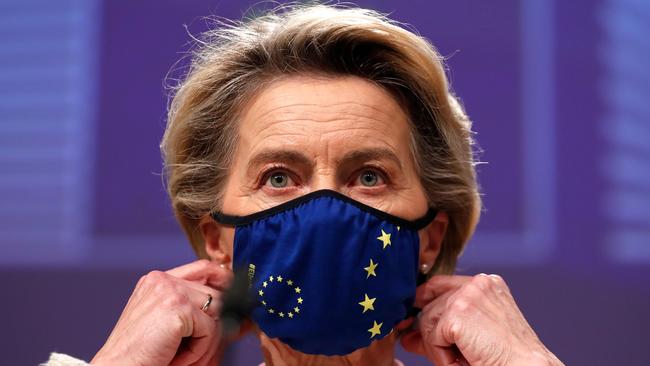
“Now they say it’s not on offer after all. Michel Barnier, what’s changed?” an official tweet said.
“We trolled him from government accounts,” an official recalled. “The commission went absolutely tonto.” An open letter from Frost complaining that Barnier wanted the UK to “bend” to Brussels led Barnier to complain about his “tone”.
Nonetheless, by June he had said there would be no role for EU law, or the European Court of Justice, in the trade treaty, an agreement cemented in a call between Johnson and von der Leyen. “We hear you,” she said. “It was fairly clear that Barnier was told to move,” a British source said. “At that stage we had won a political argument.” Hammering out the economic details would be more complicated and even more contentious.
The madman strategy
If Britain was not going to follow EU law, Barnier said the EU would still need protections against the UK undercutting its regulations on its doorstep. The so-called “level playing field” meant British rules would need to rise and fall in tandem or Britain would face retaliatory tariffs. This “equivalence clause” was a wider ranging weapon than the fisheries hammer.
EU officials went further, suggesting that if there was no deal, the EU would be able to dictate what goods would need to be checked at ports on the Irish Sea and which might have to pay tariffs.
In response, Lewis proposed that Johnson follow a “madman” strategy. Clauses were inserted in an Internal Market Bill saying Britain would make those decisions, a move that tore up part of the withdrawal agreement signed by Johnson in October last year. Lewis briefed Brandon Lewis, the Northern Ireland secretary, to bluntly accept that this was a “limited and specific” breach of international law.
When Frost was greeted with a barrage of criticism, he told Barnier’s team: “You have to understand that this reflects the Prime Minister’s determined view to protect the integrity of the country.”
Aides say Johnson, knowing Brexit will be top of the list of things on which he is judged, was the toughest of all. He repeatedly used his reputation in Europe as an erratic berserker who was prepared to contemplate a no-deal to his advantage. Officials say he would approach members of the negotiating team and say: “You’re not going weak now, are you?”
At October’s summit of EU leaders, the 27 member states played hardball of their own, announcing that it was solely up to the “UK to make the necessary moves to make an agreement possible”.
Frost and Lewis visited Johnson in No 10 and argued that only by walking away could he “create enough drama” to get EU leaders engaged. Johnson told the pair not to go to Brussels.
Even senior EU officials admit this had an effect: “We never, ever believed Theresa May would go for no-deal. With Johnson, we did not expect it, but 5 per cent to 10 per cent of you thinks he might do it — and that changes the nature of the game.”
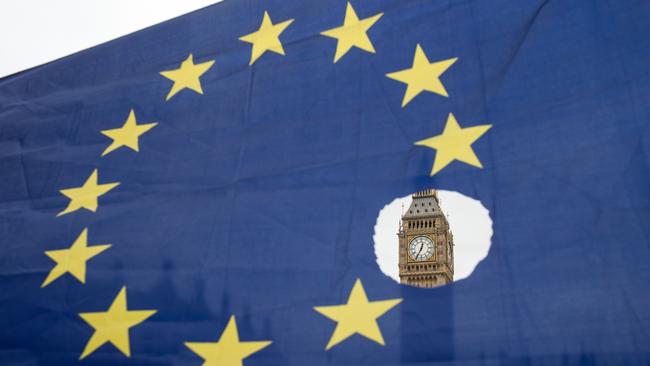
The rebalancing clause
The suspension of the talks for a week led von der Leyen to intervene. She sent political adviser Stephanie Riso, a former deputy of Barnier, to take over the talks. “Suddenly there was serious engagement and dialogue back and forth,” a No 10 source said. “She sat there doing all the work, the EU team huddling round her while Michel played on his phone.”
Around the same time, Lewis devised the key that would unlock the level playing field row — a “rebalancing” or “freedom clause”, which states that if either side feels the other is abusing divergence, or the punishment of divergence, they can request a review that would reopen the treaty in a specific area without blowing the whole thing up. It amounted to a sovereignty clause like the one Johnson had demanded at the very beginning.
Then the British team became concerned: “Suddenly the EU team was spending a lot more time in their delegation room and the engagement dried up.”
Behind the scenes French President Emmanuel Macron had intervened to stop the commission giving way. Riso made clear that the equivalence clause, giving the EU the right to hit Britain with lightning sanctions in any area if it diverged from EU rules was not going to be ditched. “We have to have this,” she said.
Frost accused his counterparts of creating a “baseball bat to bash us into alignment with EU law for ever”.
A dinner in Brussels between Johnson and von der Leyen resolved nothing. Johnson said he was prepared to lower Britain’s demand that EU fishing quotas be cut by 45 per cent. Realising he might have gone too far, he said: “I hope I haven’t thrown too much overboard.” Frost chipped in: “It’s a bit too late for that, boss.”
But von der Leyen was unmoved. “They sat there with their arms folded,” a British source said.
Frost, now dealing almost entirely with Riso rather than a “very grumpy” Barnier, continued to argue that the retaliatory tariffs should be proportionate and that the rebalancing clause would give the EU as much protection from the UK undercutting its market as it would Britain from punishment tariffs.
Then von der Leyen slapped the fisheries hammer on the table like a rotting cod. Johnson saw something that undermined the very basis of his vote to leave. “It’s not about fish — it’s about freedom,” as one aide put it.
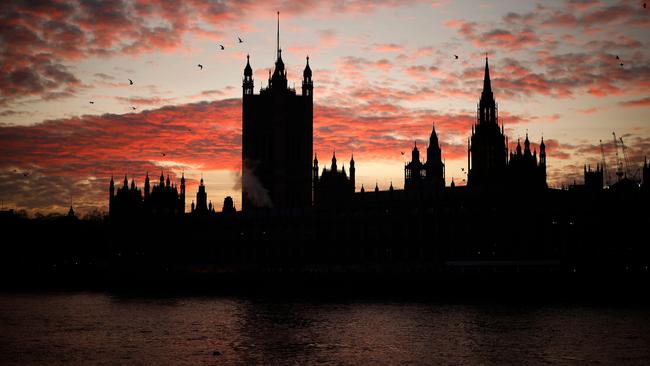
The deal is done
Even after the EU threw its hammer overboard in the call on Wednesday, Frost remained in Brussels going line by line through what the revised quota plan would mean for each of a dozen species of fish. “The bottom line is we used to catch half the fish in our waters. By the end of the transition period, it will be three-quarters,” a source said. “After that, we are into annual negotiations.”
Frost had already thrashed out a last ditch-deal on electric cars about how many non-UK and EU parts you can have on a car before “rules of origin” regulations mean tariffs are slapped on those vehicles. The EU wanted no transition. Frost fought for and won a deal that will give car plants time to adapt. Up to 60 per cent of the parts will be allowed from outside the UK and EU to start with, reducing eventually to 45 per cent. “If we hadn’t got that, the implications for Nissan and Toyota really don’t bear thinking about,” a No 10 source said. “It would make what they are doing close to unviable.”
On Wednesday evening, Johnson, who had been sustained by takeaway burgers from Five Guys, updated the cabinet. No minister was more relieved at developments than Gove, the Cabinet Office minister responsible for no-deal preparations. Contacted by a member of Frost’s team, Gove said simply: “Rejoice!”
Johnson got a good night’s sleep and woke up for a run with his dog Dilyn. But he began to lose patience. A senior figure at the BBC spoke to No 10, urging it not to announce the deal during the broadcast of the corporation’s big Christmas Eve film, Kung Fu Panda.
Around 12.30pm Johnson spoke again to von der Leyen: “We really need to get this over the line now. We’ve got to get Frosty and his team home for Christmas.”
Frost contacted the Prime Minister an hour later: “I think we’ve got there.” Johnson said: “Go and close it out.”
Twenty minutes later there was a video call with von der Leyen. Johnson asked: “So do we have a deal, Ursula?” She said: “Yes, we do.”
No 10 staff burst into spontaneous applause.
Throughout the process, Lewis had been in touch with Eurosceptics such as Sir Bill Cash to assure them that the rebalancing clause would allow any future candidate for prime minister to run on a pledge to change Britain’s relationship with the EU. “A politician can get elected on a specific mandate and say, ‘I can get the treaty changed,’” an official said.
No 10 awaits the verdict of the Brexiteers. Cummings, exiled from No 10, messaged an old colleague on Thursday and asked: “Is it a good deal?” He received the reply: “Yes.” Cummings asked some questions and concluded: “It sounds like you’ve done it.”
Another government Brexiteer said: “From my perspective, it does the job. Vote Leave’s argument was that it is possible to trade freely with Europe without having to follow the EU’s law. The deal does this. It’s a triumph of the philosophy Boris championed in 2016.”
In short, Johnson has achieved the goal that he set himself. Unlike May, his deal is likely to survive contact with his own party. Whether his focus on sovereignty was the right one that will also deliver economically is the question on which he will be judged in the future. Either way, this is Johnson’s world. The rest of us are just living in it.
The Sunday Times
More Coverage
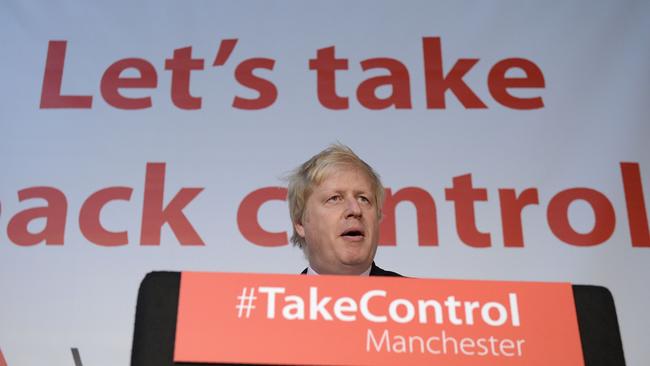


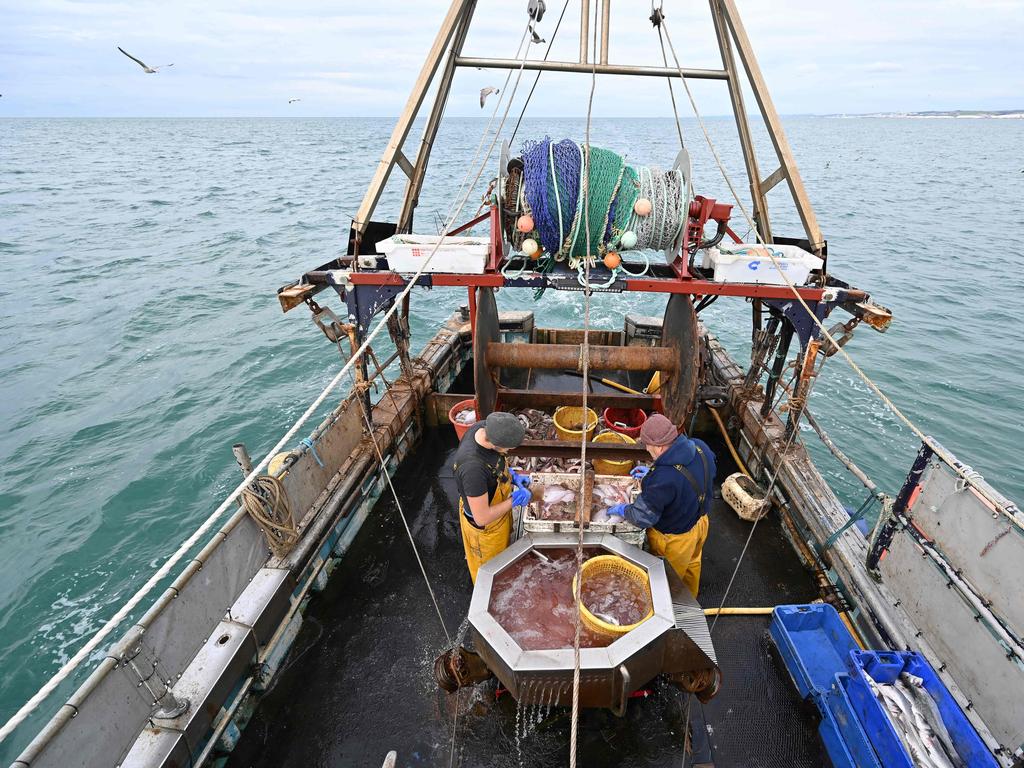


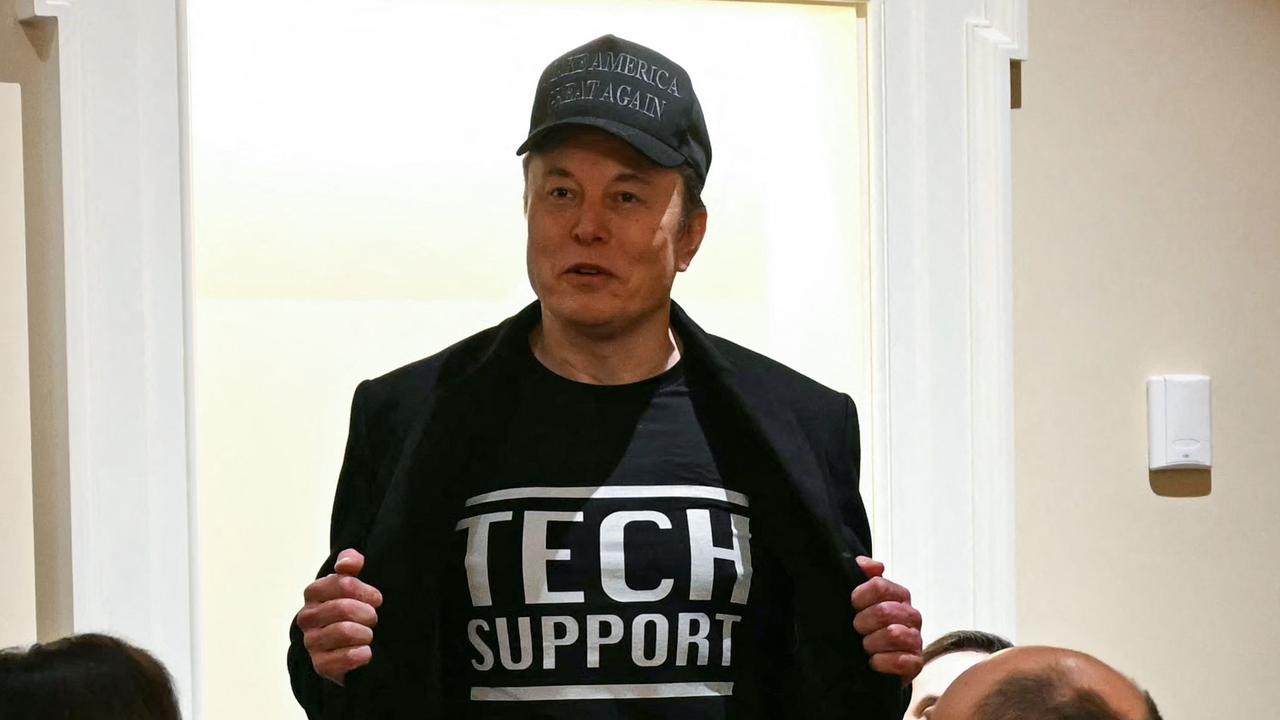

To join the conversation, please log in. Don't have an account? Register
Join the conversation, you are commenting as Logout